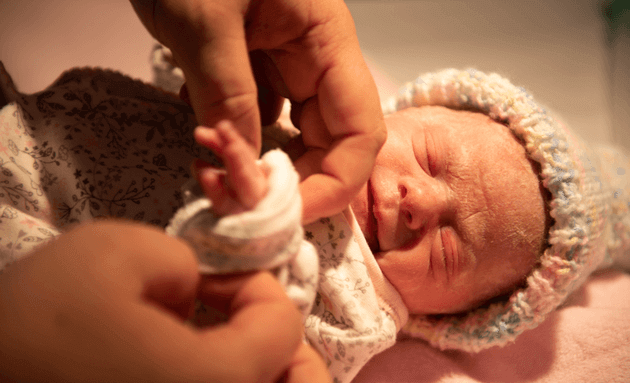Obesity is defined as having an excessive amount of fat in your body and is measured on the basis of your BMI or body mass index.
It is becoming an increasingly prevalent health problem in India and by 2025, 5% of our total population will be obese.
Being obese can increase your chances of developing multiple health issues like high blood pressure, cardiovascular diseases, certain types of cancer, diabetes, and osteoarthritis among others.
How Can You Tell If You’re Obese And Not Just Overweight?

Adding a few extra kilos a year may not sound too harmful, but when these add up over the years due to poor diet and lack of physical exercise, it can become a problem. The best way to know if you’re obese is to know your body mass index and your waist size in inches. The table below will help you know the measures correctly:
- normal weight: BMI of 18.5 to 24.9
- overweight: BMI of 25 to 29.9
- obesity: BMI of 30 or higher
Women with a waist size of more than 35 inches and men with a waist size of more than 40 inches have a higher risk of developing various diseases related to obesity.
Can Being Obese Affect Your Fertility?
Being obese can inhibit normal ovulation and can cause a delay in conception. Greater the BMI, higher the risk of getting pregnant. Obese women have a higher level of leptin (satiety hormone), a hormone that helps regulate your body weight, and can affect fertility adversely. Excess weight can also lead to decreased levels of sex-hormone-binding globule (SHBG), a protein that regulates your sex hormones, androgen and estrogen, which disrupts your menstrual cycle and in turn affects your fertility.
Does Being Obese During Pregnancy Have Any Health Risks?

Being obese presents multiple complications during pregnancy. Although it is best to eat healthy during pregnancy to provide your baby with the vital nutrients, research shows that obese women who are given diet counselling during pregnancy have had easier and healthier pregnancies.
Obesity can lead to multiple health complications like:
- Gestational Diabetes: Obese women are screened for gestational diabetes during pregnancy because this condition can often lead to Cesarean Section delivery.
- Preeclampsia: A serious condition that can affect a woman’s entire body, preeclampsia is a high blood pressure disorder. It can cause kidney and liver failure, strokes, and sometimes seizures called eclampsia.
- Sleep Apnea: It is a condition in which a person stops breathing for a short period of time during sleep. During pregnancy, sleep apnea not only can cause fatigue but can also increase the risk of high blood pressure, preeclampsia, eclampsia, and heart and lung disorders.
What Health Risks Does Your Baby Face If You’re Obese?

Being obese can lead to a number of health risks for you as well as for your baby.
- Pregnancy Loss: Obese women have a higher risk of a miscarriage, although no direct link has been scientifically established yet
- Stillbirth: The risk of stillbirth, or in utero death is higher among women who are obese
- Preterm Birth: Preterm birth indicates that the baby is delivered earlier than the due date for medical reasons. They are not fully developed babies and may have an increased risk of short-term and long-term health conditions
- Problems with tests: Excessive fat in the body can make it difficult to detect any problems in the baby’s anatomy or check the baby’s heart rate during labour
- Birth Defects: Babies who are born to obese women have an increased risk of developing obesity, as well as heart or neural tube defects
- Macrosomia: It is a condition in which the baby is larger than normal, increasing injury risks during delivery
Can You Lose Weight Healthily Before Getting Pregnant?

Staying healthy is a major factor in pregnancy, and there are multiple ways your doctor can recommend for you to lose weight before pregnancy.
Depending on your health conditions, your doctor might suggest specific diets, regular physical exercise, or weight-loss medications.
Obesity and Labour Pain - What is the Connect?
Women with a higher BMI experience longer labour than women with normal BMI. It becomes difficult to monitor the baby during the period and increases the likelihood of Cesarean delivery. A C-section delivery can lead to health complications and the risk of infection and bleeding.
Your doctor will help you maintain or reduce your weight depending on your pregnancy (single or multiple) and help lower the risk of your baby being affected by fetal macrosomia (a condition in which the baby is born heavier than usual). Based on tests, he or she will recommend the perfect weight plan for you and your baby.

0Comments